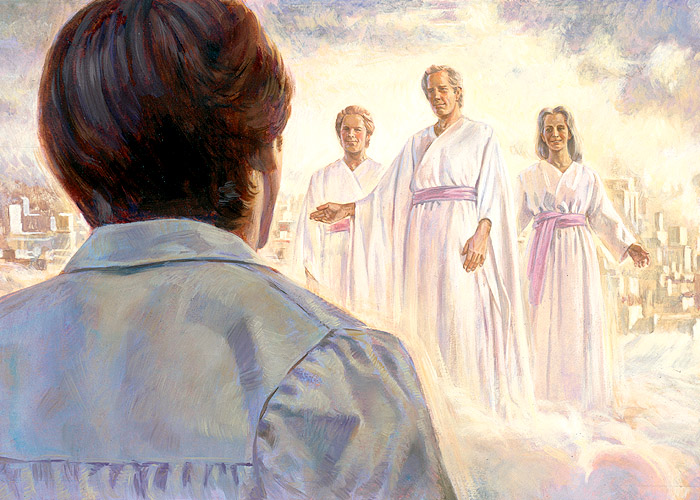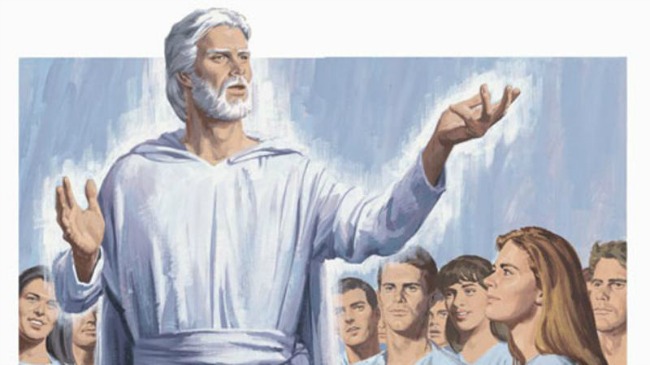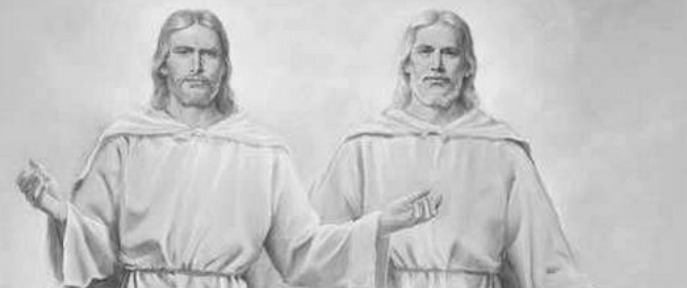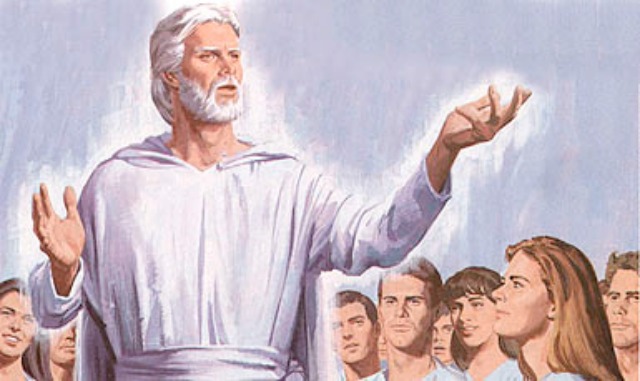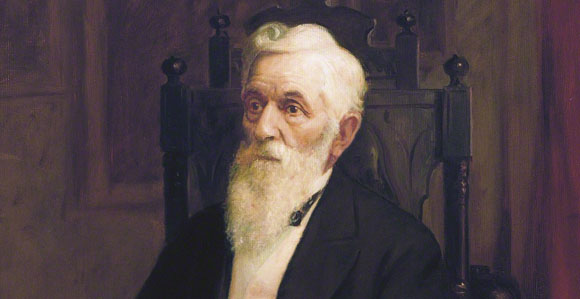Question
Dear Gramps,
Could you explain a little further the nature of Heavenly Father? Specifically, does he have a father and so on and so on and did he have to gain a body and have a savior? Where might I find a scripture or prophet discussion to read to better understand this?
Jan
Answer
Dear Jan,
That is a pretty profound question. However, can you even imagine that there was ever a father who was not first a son? If our Father in Heaven was not born into his generation of the Gods, where could He have come from; how could He have materialized? The only hint of this theme in the scriptures that I know of is found in John 5:19—
Then answered Jesus and said unto them, Verily, verily, I say unto you, The Son can do nothing of himself, but what he seeth the Father do: for what things soever he doeth, these also doeth the Son likewise.
Could that scripture be interpreted in any other way than that our Heavenly Father was the great Savior and Redeemer of his generation of the Gods, and the Savior did what He saw his Father do?
A good starting point in such a study as this would be to contemplate the LDS Hymn “If You Could Hie To Kolob,” Hymn No. 284. The words to this hymn were written by that marvelous LDS poet and trusted associate of the Prophet Joseph Smith, William W. Phelps, and the first three of the five verses go as follows: (The word ‘hie’ is not used much in our vocabulary of today. It simply means, ‘to go’.
1. If you could hie to Kolob In the twinkling of an eye,
And then continue onward With that same speed to fly,
Do you think that you could ever, Through all eternity,
Find out the generation Where Gods began to be?
2. Or see the grand beginning, Where space did not extend?
Or view the last creation, Where Gods and matter end?
Me thinks the Spirit whispers, “No man has found ‘pure space,’
Nor seen the outside curtains, Where nothing has a place.”
3. The works of God continue, And worlds and lives abound;
Improvement and progression Have one eternal round.
There is no end to matter; There is no end to space;
There is no end to spirit; There is no end to race.
And while we’re on the subject of William W. Phelps, let me share with you another, not so well known, poem that he wrote to Joseph Smith. It is called VADE MECUM (Go With Me).
Go with me, will you go to the Saints that have died,
To the next better world, where the righteous reside,
Where the angels and spirits in harmony be,
In the joys of a vast paradise?
Go with me.
Go with me, where the truth and the virtues prevail,
Where the union is one, and the years never fail:
Not a heart can conceive–not a natural eye see
What the Lord had prepared for the just.
Go with me.
Go with me, where there is no destruction nor war,
Neither tyrants nor mobbers, nor nations ajar,–
Where the system is perfect, and happiness free,
And the life is eternal, with God.
Go with me.
Go with me, will you go to the mansions above,
Where the bliss and the knowledge, the light and the love,
And the glory of God do eternally be?
Death, the wages of sin, is not there.
Go with me.
Gramps

